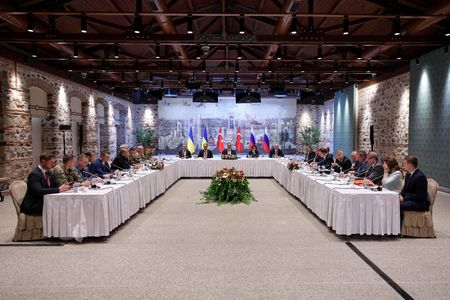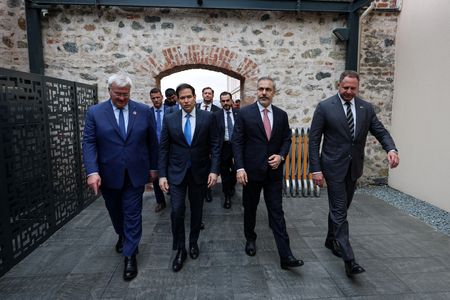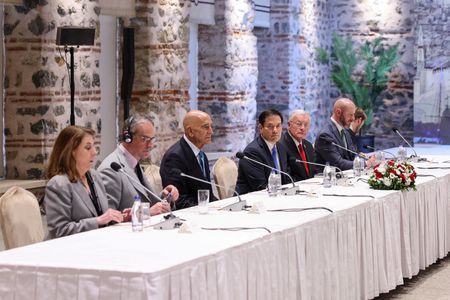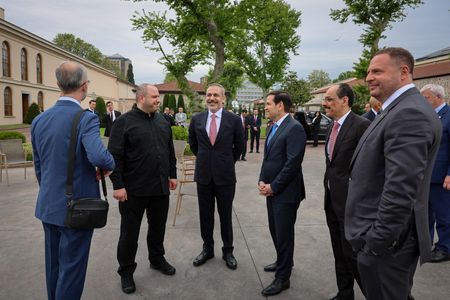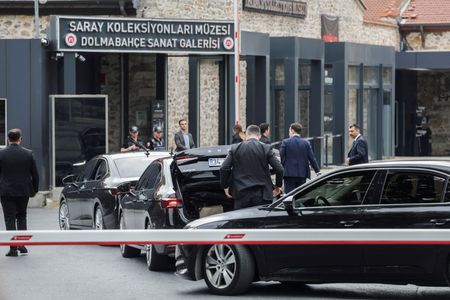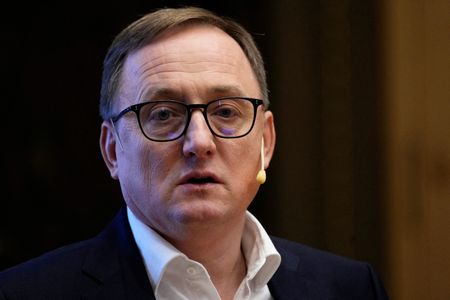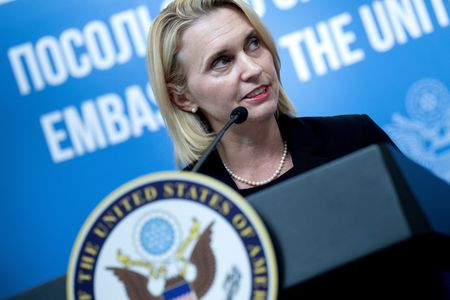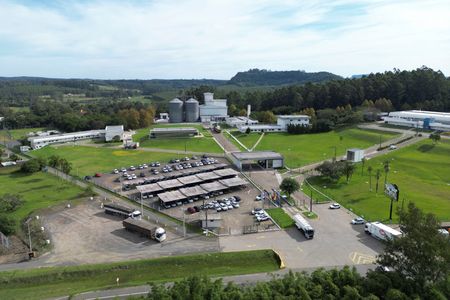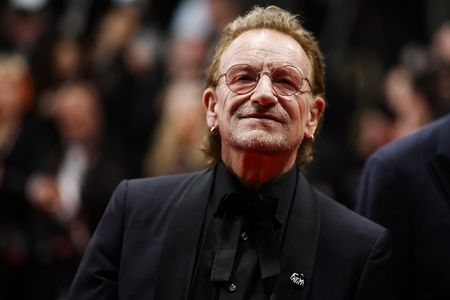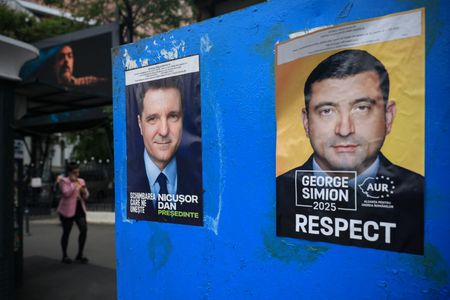By Tom Balmforth, Can Sezer and Vladimir Soldatkin
ISTANBUL (Reuters) -Ukraine rallied support from its Western allies on Friday after Kyiv and Moscow failed to agree to a ceasefire at their first direct talks in more than three years, with Russia presenting conditions that a Ukrainian source described as “non-starters”.
Under pressure from U.S. President Donald Trump to end the bloodiest conflict in Europe since World War Two, delegates from the warring countries met for the first time since March 2022, the month after Russia invaded its neighbour.
The talks in an Istanbul palace lasted well under two hours. Russia expressed satisfaction with the meeting and said it was ready to continue contacts. Both countries said they had agreed to trade 1,000 prisoners of war each in what would be the biggest such exchange yet.
But Kyiv, which wants the West to impose tighter sanctions unless Moscow accepts a proposal from Trump for a 30-day ceasefire, immediately began rallying its allies for tougher action.
As soon as the talks ended, Ukraine’s President Volodymyr Zelenskiy held a phone call with Trump and the leaders of France, Germany and Poland, his spokesperson said.
Zelenskiy said robust sanctions should follow if Russia rejected a ceasefire.
Russia’s demands were “detached from reality and go far beyond anything that was previously discussed,” a source in the Ukrainian delegation told Reuters.
The source, speaking on condition of anonymity, said Moscow had issued ultimatums for Ukraine to withdraw from parts of its own territory in order to obtain a ceasefire “and other non-starters and non-constructive conditions”.
British Prime Minister Keir Starmer said the Russian position was “clearly unacceptable” and that European leaders, Ukraine and the U.S. were “closely aligning” their responses.
European Commission President Ursula von der Leyen said the EU was working on a new package of sanctions against Moscow.
Russia’s lead negotiator, Vladimir Medinsky, told reporters that his team had “taken note” of the Ukrainians’ request for direct talks between Zelenskiy and President Vladimir Putin. Putin, after proposing the direct talks, had spurned a challenge from the Ukrainian leader to meet him personally in Istanbul.
“We have agreed that each side will present its vision of a possible future ceasefire and spell it out in detail. After such a vision has been presented, we believe it would be appropriate, as also agreed, to continue our negotiations,” Medinsky said.
RUSSIA WANTS MORE TALKS BEFORE CEASEFIRE
Ukrainian Foreign Minister Andrii Sybiha said the outcome was positive if only for the prospect of prisoners coming home.
“One thousand of our people — we managed to agree on their return. These are 1000 happy families. Even for this reason alone, it all made sense,” Sybiha wrote on Facebook.
Securing a ceasefire was not possible as Russia had sent “low-level” negotiators, he said.
Zelenskiy said Kyiv’s top priority was “a full, unconditional and honest ceasefire… to stop the killing and create a solid basis for diplomacy”.
The sides mostly repeated known positions. The Ukrainians wanted an immediate ceasefire and talks to ensue, while the Russians demanded more peace talks before agreeing on a ceasefire.
“If you want serious negotiations, you need to have guns silent,” Ukraine’s foreign ministry spokesman Heorhii Tykhyi told reporters.
Expectations for a major breakthrough, already low, were dented further on Thursday when Trump, winding up a Middle East tour, said there would be no movement without a meeting between himself and Putin.
Russia says it wants to end the war by diplomatic means and is ready to discuss a ceasefire. But it has raised a list of questions and concerns, saying Ukraine could use a pause to rest its forces, mobilise troops and acquire more Western weapons.
Ukraine and its allies accuse Putin of stalling, and say he is not serious about wanting peace.
CALM ATMOSPHERE
The negotiating teams sat opposite one another on either side of a U-shaped table, with the Russians dressed in suits while half of the Ukrainians wore military fatigues.
A Turkish official said afterwards the atmosphere had been calm during the talks. No concrete timetable or location had been agreed for the next round of talks, the official said, with both sides needing to debrief their leaders first.
The Ukrainian source said the Ukrainians spoke in their own language, through an interpreter, although Russian is widely spoken and understood in Ukraine.
A Ukrainian and a European source said Russia had rejected a Ukrainian request for U.S. representatives to be in the room.
Two sources familiar with the talks said Medinsky had said Russia was ready to keep fighting for as long as necessary, drawing a historical parallel with the wars of Tsar Peter the Great against Sweden that lasted 21 years in the early 1700s.
“We do not want war, but we are ready to fight for a year, two, three — as long as you want,” one of the sources quoted him as saying.
GRINDING ADVANCE
Russia said on Friday it had captured another village in its slow, grinding advance in eastern Ukraine. Minutes before the start of the Istanbul meeting, Ukrainian media reported an air alert and explosions in the city of Dnipro.
Russia says it sees the talks as a continuation of the negotiations that took place in the early weeks of the war in 2022, also in Istanbul.
But the terms under discussion then, when Ukraine was still reeling from Russia’s invasion, would be deeply disadvantageous to Kyiv if they were repeated now. They included a demand by Moscow for large cuts to the size of Ukraine’s military.
Zelenskiy’s chief of staff, Andriy Yermak, said Russian attempts to align the new talks with the unsuccessful earlier negotiations would fail.
With Russian forces in control of about a fifth of Ukraine, Putin has held fast to demands for Kyiv to cede territory, abandon NATO membership ambitions and become a neutral country.
Ukraine rejects these terms as tantamount to capitulation, and is seeking guarantees of its future security from world powers, especially the United States.
(Reporting by Can Sezer, Humeyra Pamuk, Tom Balmforth, Vladimir Soldatkin and Jonathan Spicer in Istanbul, Olena Harmash and Yuliia Dysa in Kyiv, Ece Toksabay and Tuvan Gumrukcu in Ankara, John Irish in Paris, Andrew Gray and Fatos Bytyci in Tirana and Reuters reporters in Moscow; Writing by Mark Trevelyan; Editing by Peter Graff, Alex Richardson, Frances Kerry, Ron Popeski and Cynthia Osterman)

